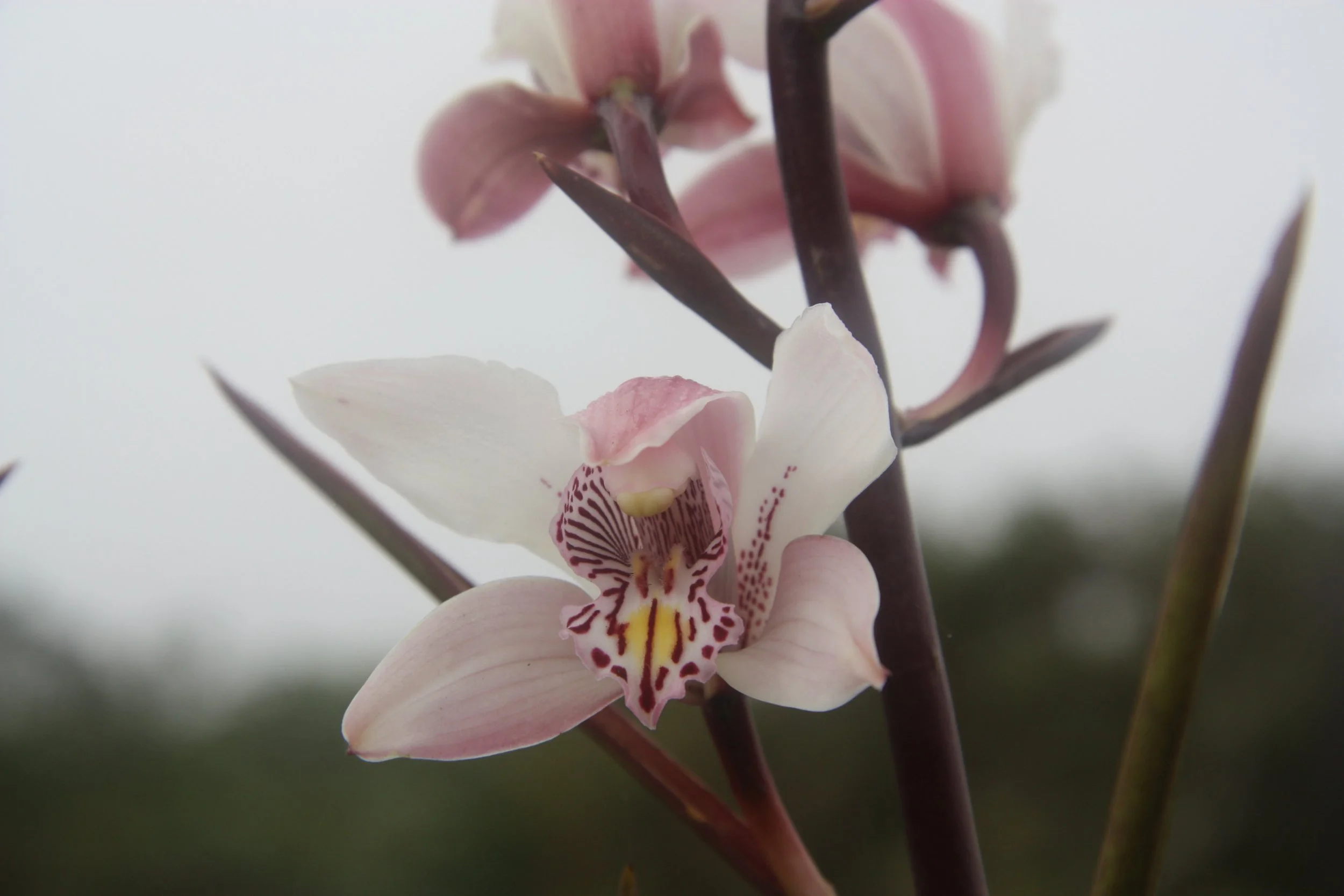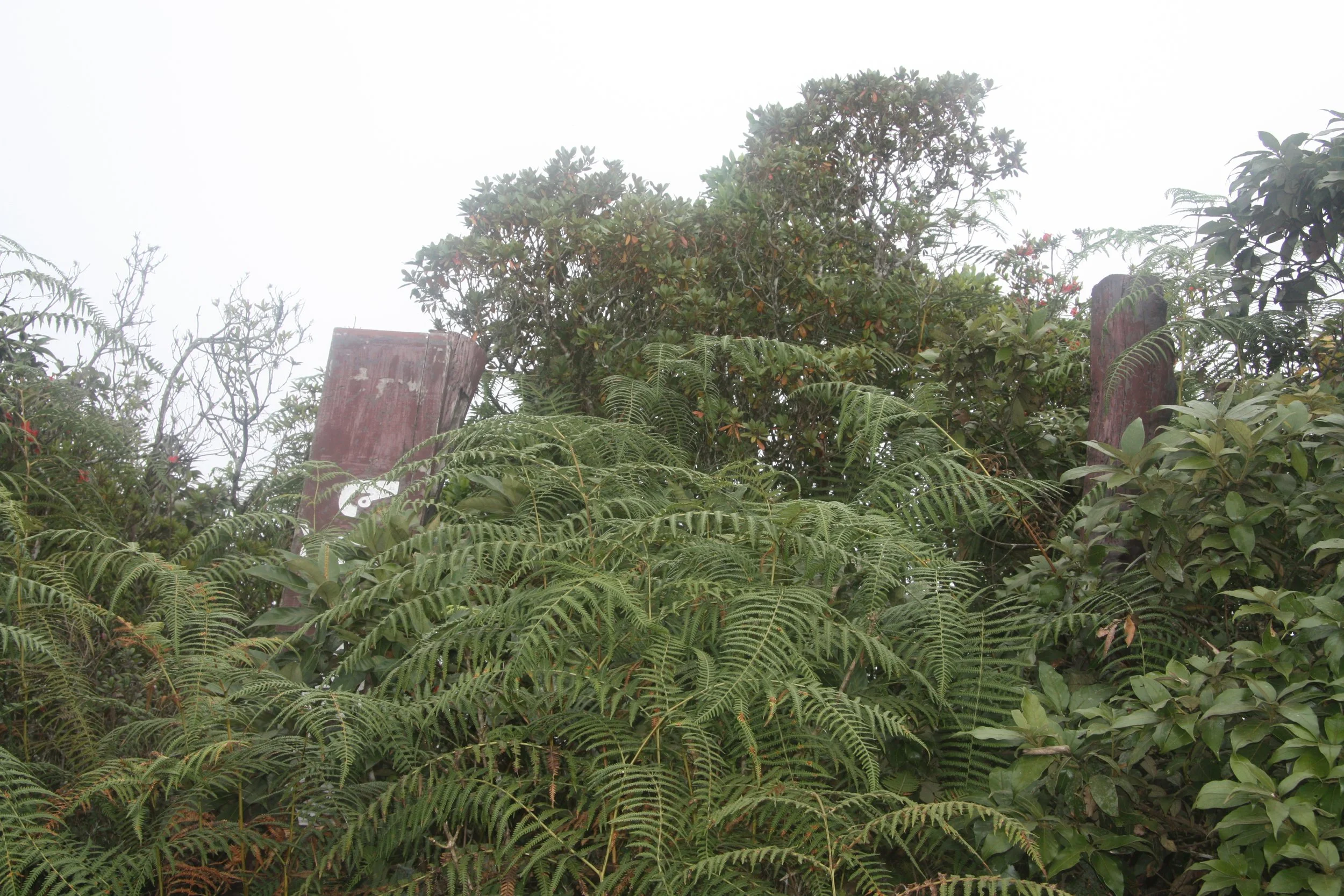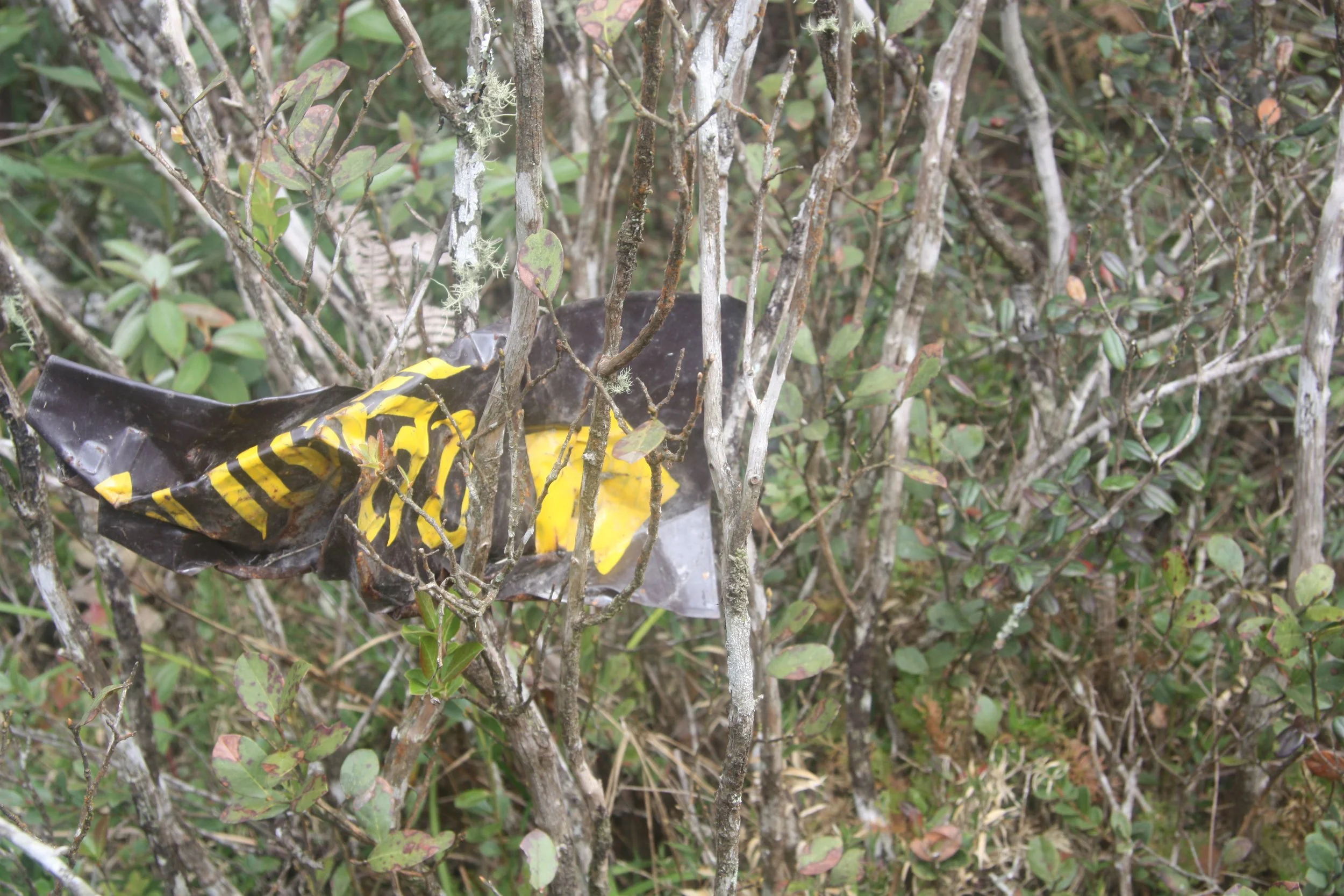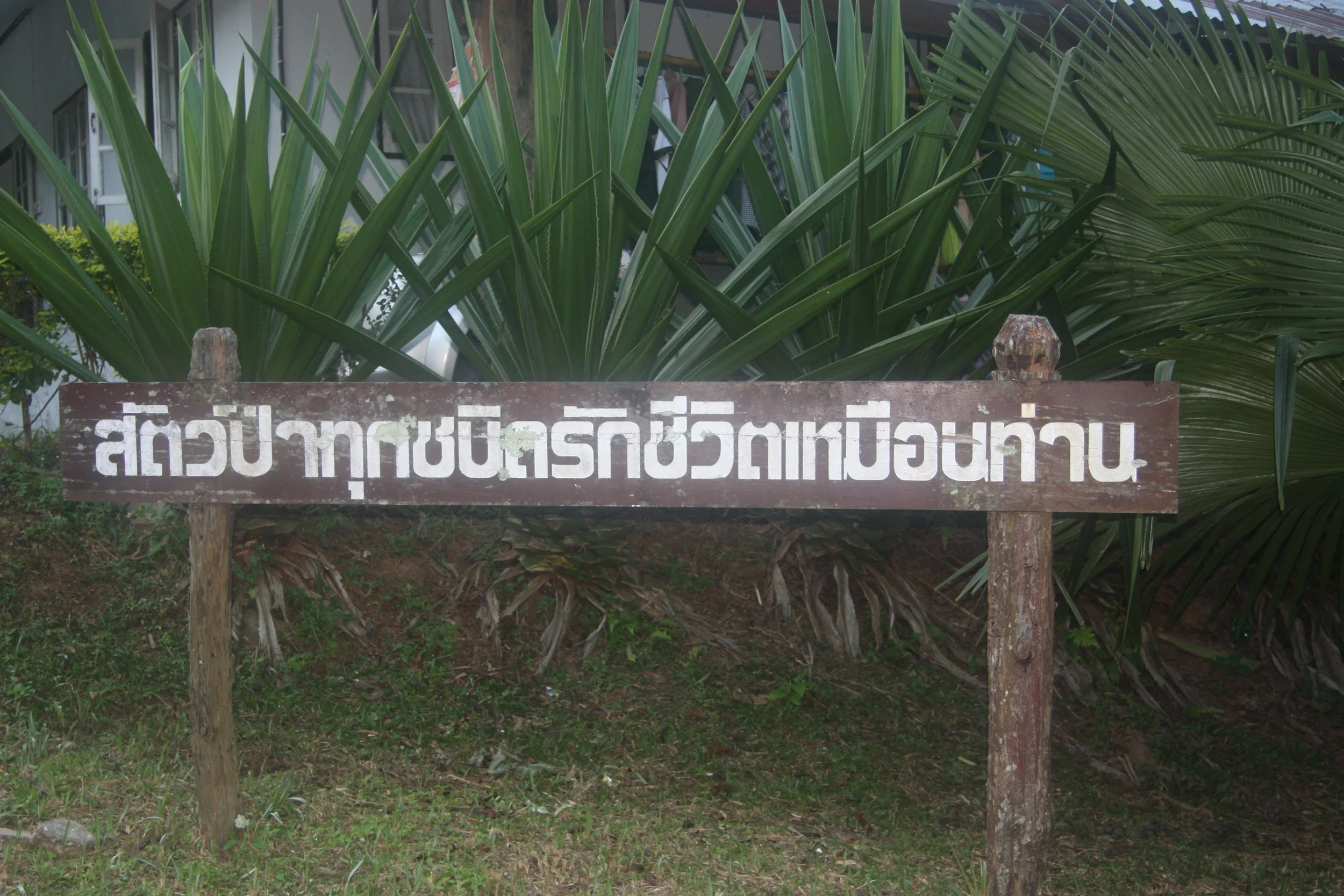Endangered Lives of Phu Luang
It all begins with an idea.
Loei Province
The domesticated chicken is by far the most populous bird on the planet. At best estimates, there are currently around three chickens for every human person, or more than 20 billion individual birds.
The consensus among experts is that the 20 billion chickens derived from two or more species of wild jungle fowl indigenous to an area of Southeast Asia including the present day province of Loei, Thailand. The first domestication and selective breeding of these ancestors to chickens is believed to have begun around 8,000 years ago, the handiwork of some of this region’s early settlers. The practice spread quickly, until the time of Alexander the Great, who brought fighting cocks from Asia back to Europe, setting into motion the global colonization that led to today’s 20 billion.
Remarkably, some wild relatives of those original ancestors of the domesticated chicken still roam the jungles in Thailand, including in Phu Luang, a a mountainous wildlife Sanctuary in Thailand’s Loei province. The chicken’s ancient ancestors are rare, but visitors to Phu Luang may catch a glimpse of one of these species, known locally as the“gai fa” (ไก่ฟ้า).
Unlike their domesticated cousins, they are skittish and prefer the cover of dense brush away from humans. But they will come out briefly into the open to munch on scattered rice. No doubt this mirrors the way it all started for the domesticated chicken.
There are cabins and plenty of spaces to camp near the “gai fa” up on top of Phu Luang and near a foggy lookout point on Phu Luang mountain. But, we camped in the grass near the Sanctuary's entrance, which we found after following a long and mostly unmarked winding country road that passes several small hillside villages.
We arrived a bit late, just after the sun had set. The purple sky was changing over into darkness. The park rangers insisted we camp down below, noting that traveling up the mountain at night could be unsafe. The multiple families of wild elephants residing on Phu Luang would soon be out for their nightly romp and they sometimes don't like extra company, or a car's blinding headlights, or any other strange sights humans tend to install into their environments. The psychology of a wild elephant squeezed into one of their last remaining natural sanctuaries is mysterious and unpredictable.
Some of the roughly 100 elephants that live within Phu Luang have adopted a habit of knocking down roadside posts, signs, water pipes, and practically anything else the rangers had installed . In the past, and for unknown reasons, some of the elephants have become aggressive – one charged and nearly knocked over a truck carrying visitors up the mountain. Elephants are known to be protective of their territories, but on Phu Luang they seemed to be becoming particularly irritable. While exploring the park by road the next day, I saw broken, kicked-in and utterly destroyed road signs scattered across the park.
Duly warned about not venturing beyond our patch of grass near the ranger’s station at the base of the mountain that night, we began setting up our tent and I lit a fire in our portable clay charcoal cooker. Several of the park rangers, who are housed in cabins nearby, spent the next several hours with us that night. We shared pieces of our barbecued squid, and they shared stories about their job protecting the sanctuary from poachers, encroaching farmers, and other dangers to life on the mountain. One ranger brought out a laptop that contained many folders full of hundreds of pictures of evidence collected of illegal trafficking of endangered animal carcasses poached in from the sanctuary. The poachers, one of the Rangers said, were often experienced animal traffickers from abroad.
They sneak into the park,, and attempt to sneak back out with as much wildlife (dead or alive) as they can find. Sometimes they are caught. According to the rangers, there have even been a few shoot-outs with the trespassers. The job of the rangers comes with serious hazards, and honery elephants apparently were the least of them. The rangers are always armed and camouflaged like soldiers. The real reason for this precautions is not is for protection from wild animals.
Later that evening, shortly before heading in the tent for a cool and pleasant night of sleep, I watched as a few of the rangers suited up and prepared themselves for a night shift. They headed off into the darkness in their green pickup truck. Thai folk rock music blasted from their radio as they sped off into the park.
Tonight’s mission? To scare a group of elephants away from some surrounding villages and farms that lay just at the sanctuaries borders. The elephants of course have no such concept of boundaries to their wandering and grazing, but those that wander too far are prone to destroying crops or whatever else gets in their way. This unfortunately ultimately puts the animals continued survival in jeopardy. Ultimately, a relatively happy co-existence with local villagers is the only chance the elephants have to remain living wild in these mountains,. So, its up to the rangers to find ways to corral the herds within their expected boundaries. As I shut my eyes to sleep that night, we could hear the sound of gun shots in the distance. It was the rangers shooting blanks or flares, doing their nightly work to keep the wild beasts contained within the sanctuary meant to protect them.
Breakfast the next morning was again shared with the friendly rangers. They invited us to their outdoor mess hall to join in in their meal of sticky rice, 'nam prik' (a paste made with liberal potions of chilies), and other assorted popular northeast Thailand foods (including a paste made from raw pork, which I politely avoided).
We talked some more about their constant struggle of protecting wild animals, and the rangers mentioned that they recently added a new responsibility to their job description, which I thought may be their most important one yet. The rangers of Phu Luang, in an effort to improve the reputation of the park among the local communities, now make regular visits to schools and public gatherings to educate locals about the importance of preserving life of endangered animals and to advocate their value to the Phi Luang communities. Sometimes the rangers dressed up in costumes and they even formed an Phu Luang rangers band to perform traditional music at local parties and festivals. The rangers said that it seemed to be making a difference.
One of the rangers, who went by the nickname 'Ouan' (meaning fat) spent most of the day with us, and gave a complementary guided tose some of the sights on the top of the mountain. He told me that the rangers swear an oath each morning, promising to protect the life in the sanctuary for future generations to enjoy. Ouan told me that some of the rangers believe that those who have taken the oath and broken it become cursed and will certainly die young or shortly after their retirement. I thought it a rather convenient thing to believe since the oath was a part of their job, but he seemed sincere in believing it to be true.
I noticed a sign at the entrance to Phu Luang that we didn’t see when we arrived the previous evening. It states (roughly translated):
”All kinds of animals in the forest love life just like you.”
It was the only sign I saw in the whole sanctuary that hadn’t been destroyed by an elephant.
How Will Climate Change Affect the Isaan Region?
It all begins with an idea.
Climate change affects the whole planet, but it will affect countries and regions differently. In some northern hemisphere parts of the world, the short-term local effects from climate change might not seem so bad. A warmer climate could expand the amount of arable land in Russia and Canada.
Thailand, on the other hand, is already experiencing negative effects from climate change in the form of increased risks and increased severity of flood hazards, warming seas and rising sea levels.
What about Thailand’s northeast region? What will climate change mean for Isaan?
Isaan is dominated by agricultural land. Much of the Isaan region has been known in the past more for drought r than floods. But, notably, during 2024 the Isaan region experienced some of its worst floods ever recorded(1), including the effects from multiple seasonal typhoons and a bursting of the Mekhong river from its banks, which affected multiple Isaan provinces.
1. https://www.bangkokpost.com/thailand/special-reports/2421888/ubon-floods-worst-in-history
The meteorological and hydrological records for the Isaan region are managed by the Thai Meteorological Department (https://www.tmd.go.th/). A study published in the Journal of Atmospheric Research by two Thai authors using Thai Meteorological Department data dating back to 1955, found that rain storms had become less frequent but more intensive over time.
Another effect from the global greenhouse effect for Isaan is potential changes to the timing of the wet and dry seasons. Each year, farmers need to make a difficult choice of timing the planting and harvesting of their crops. A local farmer I spoke to compared these decisions to gambling. Act too quickly or too slowly and an individual farmer could experience devastating losses.
A survey conducted by UN University predicted that farmers in Khon Kaen province will face 10% decrease in rice yields across the province due to flooding and drought.(2) Many other meteorological and agricultural studies for the region come to similar conclusions. Adaptation is key. Diversification, adapting to changes in seasonal timing and higher temperatures will be important so that farmers are not just gambling but also hedging and protecting their investments. Some versatile farmers may even find ways to leverage advantage from expected increases in annual rainfall for the region. Public investment for the common good will also become inreaingly important in the region, especially for disaster risk reduction and water management.
More studies are needed, but uncertainties in modelling local climate and the effects from climate change are inevitable. For places like Isaan where agriculture is the heart of the local economy, the annual gamble may becoming more difficult than ever. Thus, Isaan people have as much at stake as anyone in the world from reducing our carbon footprints.
2. https://ourworld.unu.edu/en/climate-change-adaptation-for-thailands-rice-farmers
Practical Advice for Foreigners Registering a Marriage or a divorce in Thailand
It all begins with an idea.
Navigating administration in a foreign country can feel overwhelming. There is a glut of websites from legal partnership and translation websites dedicated to the topic of registering a marriage or divorce in Thailand for foreigners. Some of the sites provide fearfully confusing, and at times contradictory descriptions of the registration process. What are the real rules and documentation requirements for registering a marriage or a divorce in Thailand?
A general truth that you will find looking across these online resources for foreigner is that civil registration is relatively easy and straight-forward in this country.
I have personally witnessed marriages and a divorce in Thailand that required nothing more than a passport, a national ID, the house registration (‘tabian baan’) for the Thai national, and, in the case of a divorce, the orginal marriage certificates (‘tabian som rot’). If both parties are present the process is completed very quickly. But, the exact requirements in your case will depend on a number of factors, especially on whether or not there are any children or shared assets involved, and may depend on the District Office where you intend to register.
The easiest and best way to confirm without a doubt the requirements in your specific case is to visit your local District Office and ask them. If you don’t speak Thai or don’t feel comfortable entering a government office by yourself, than one of the great things about Thailand is it’s not usually that hard to find a kind soul willing to help you by accompanying and helping to ask your question. When entering the District Office, politeness and respect for local culture is paramount. After that, your process should be remarkably easy and streamlined in Thailand.
Of course, it is not in the interest of the legal partnerships and translation services web pages to make this recommendation. It is technically in their commercial interest to make the process seem onerously hard, or even risky to navigate on your own. Maybe that is the reason for the abundance of confusing and fearful information on many of these websites. An example I found on the website for a translation service was a claim that marriage and divorce registrations required translation for the foreigner’s passport. This struck me as bizarre, so I called the translation company’s office. The woman told me that this requirement was actually the translation of an authentication document, to be issued by request by the Foreigner’s national embassy, which is then submitted for approval by the Ministry of Foreign Affairs. The translation service described a process that required submitting formal requests both to the embassy and then Ministry, with official translation in between, which easily could have taken a month. My visa would expire before it was finished.
I think there are some special circumstances where the approval of a translated copy of an embassy’s authentication of your passport could be useful for your personal business while in Thailand. But, this certainly wasn’t the case for the marriages and one divorce that I have witnessed. Again, this could be easily confirmed yourself with a short visit to your District Office.
While listening doubtfully to the complex explanation and serious tone from the woman at the translation company as she insisted I would need her service I imagined that most people in that situation probably would indeed be ready to pay for professional help. There are legal partnerships, for example, who offer flat-rate packages to handle the paperwork and to support you with representation in a marriage or divorce registration. But, no one wants to pay a service or for a document that they didn’t actually need. This would be a kind of red tape that is not of the government bureaucracy, but manufactured by the private sector.
There are many cases, such as when children are involved, or if it is a contested divorce, where legal services or representation might be very important, or at least more efficient, when registering marriages or divorces. However, it is also worth noting that in the general baseline cases of conducting civil registration, Thailand is likely to be a relatively simple and well streamlined example, with minimal documentation requirements. An example of good governance, often overlooked although civil registration is an important government responsibility.
In the divorce case I witnessed in Thailand, the couple lacked a 2nd witness. No problem, because one of the office assistants that happened to be sitting with some free time at the front of the District Office was more than happy to stand in as their 2nd witness. A series of documents were produced in front of the couple as they sat at the official’s desk. There were a couple of rounds of signatures with the official, and at some point the head of the District Office steps in and adds his signature. Just like that, and it’s over. From the time we arrived until we left the District Office, not more than 30 minutes had passed. I can’t imagine how a lawyer or other professional help could have possibly made it go any easier.
Lawyers are sometimes essential services indeed, but there are also times when your best course of action will be first to gather information yourself and directly from the source. You can visit a Thai District Office yourself, and simply ask them.
Blog Post Title Four
It all begins with an idea.
It all begins with an idea. Maybe you want to launch a business. Maybe you want to turn a hobby into something more. Or maybe you have a creative project to share with the world. Whatever it is, the way you tell your story online can make all the difference.
Don’t worry about sounding professional. Sound like you. There are over 1.5 billion websites out there, but your story is what’s going to separate this one from the rest. If you read the words back and don’t hear your own voice in your head, that’s a good sign you still have more work to do.
Be clear, be confident and don’t overthink it. The beauty of your story is that it’s going to continue to evolve and your site can evolve with it. Your goal should be to make it feel right for right now. Later will take care of itself. It always does.






